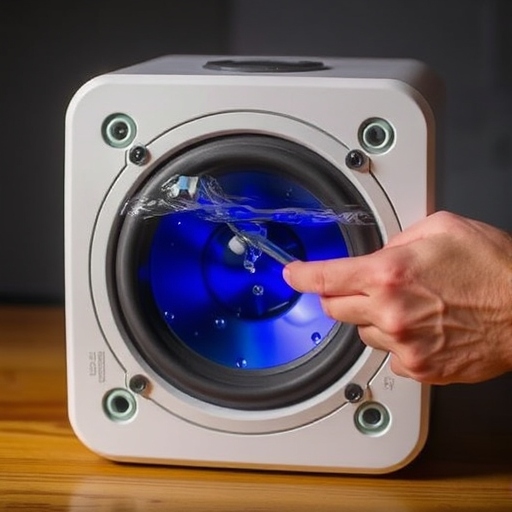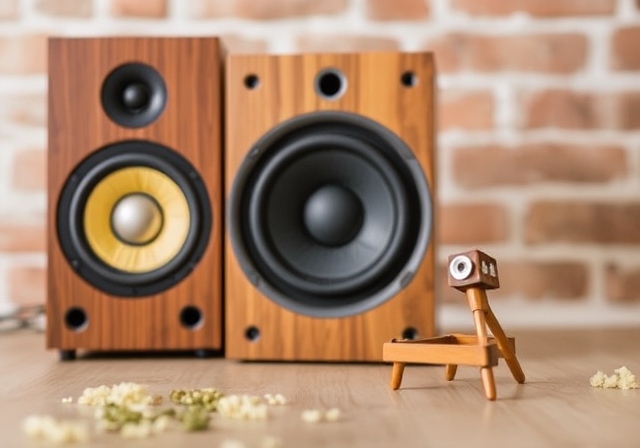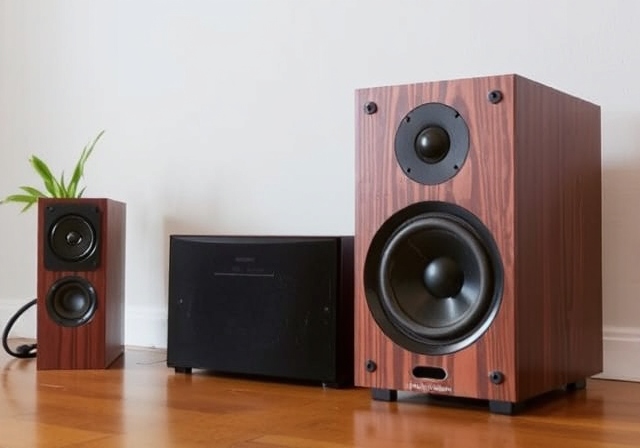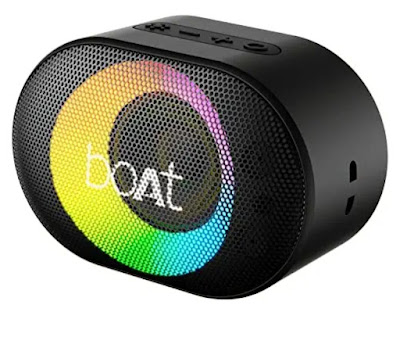How to Fix Common Speaker Issues: A Complete Guide
Speakers are essential for enjoying music, making calls, and experiencing audio content. However, over time, speakers can face various issues, such as dust buildup, low volume, poor bass, and even water or oil damage. Whether you own a Bluetooth speaker, a call speaker, or a regular speaker, knowing how to fix these issues will extend the life of your device and keep it performing at its best. This guide discusses fixing your speaker and improving its performance, including cleaning out speaker dust, fixing low sound quality, and more.

Outline:
- Introduction
- How to Clean Speaker Dust
- Fixing Low Volume and Sound Quality
- Dealing with Oil or Water Damage
- Improving Bass and Sound Clarity
- Frequently Asked Questions (FAQ)
- Conclusion
1. Introduction: Why Speaker Maintenance is Important
Whether it’s a Bluetooth speaker you’re using to play your favorite songs, a call speaker for clear conversations, or any other type, regular maintenance is essential. Dust, moisture, and oil can negatively affect your speaker’s performance, leading to muffled sounds, low bass, or distorted audio. Fixing these problems and cleaning your speaker can significantly enhance the listening experience.
2. How to Clean Speaker Dust
Dust buildup is one of the most common causes of poor sound quality. It can obstruct the speaker grills, leading to a low sound output, muffled audio, or distorted sound. Cleaning the dust is simple but crucial for maintaining your speaker.
To fix my speaker dust:
- Turn off your speaker and unplug it from any power source.
- Use a soft brush or a can of compressed air to remove dust from the speaker’s mesh or grill area. Be gentle when cleaning around the edges to avoid damaging the speaker.
- If your speaker has a call speaker dust cleaning sound issue, make sure to clean the microphone holes as well. These tiny openings can easily get clogged with dust, affecting the clarity of calls.
- For Bluetooth speakers, dust buildup around the charging port or buttons may also affect performance. Clean them with a microfiber cloth for better results.
- Clean the microphone area: For call speakers, dust can also accumulate in the microphone area, affecting sound clarity. Use a soft cloth or a small brush to clean this area.
Regular dusting will improve your speaker’s sound and ensure it operates optimally.
3. Fixing Low Volume and Sound Quality
Many users face issues with low volume or unclear sound from their speakers. If you’re struggling with poor Sound system, follow these steps:
Fix My Speaker Volume:
- Check the volume settings on both your device and your speaker. Sometimes the volume on your phone or laptop may be too low.
- Reset the speaker: If it’s a Bluetooth speaker, try turning it off and back on again. A factory reset might also resolve sound issues.
- Update firmware: Some modern Sound system have firmware updates that can fix bugs affecting sound quality.
If the issue persists, speaker dust inside the device might be obstructing the sound. Cleaning the internal components can restore the sound.
Improving Sound Quality:
If your Sound system distorted or weak, cleaning the dust is essential. For call speaker devices, poor sound quality might be due to microphone dust. Cleaning these areas improves audio clarity during calls. If your speaker’s ear section (where sound comes out) is blocked, try gently wiping the area with a cloth.
4. Dealing with Oil or Water Damage
Speakers are prone to damage from oil or water, especially when exposed to spills or humid environments. Here’s how to fix those issues and u can use this website :https://fixmyspeakers.com

Fix My Speaker Oil:
If your Sound system has been exposed to oil, especially from food or greasy hands, it can leave a residue that affects the speaker’s performance.
- Wipe the affected areas with a damp cloth. Make sure you don’t apply too much moisture.
- For stubborn stains, use a small amount of mild soap or dishwashing liquid diluted in water. Avoid using alcohol or harsh chemicals that could damage the speaker.
- Once cleaned, let your speaker dry completely before using it again.
Fix My Speaker Water:
Water damage can be one of the most serious issues for any speaker. Here’s how to deal with it:
- Turn off the speaker immediately if it gets wet.
- Remove any batteries or external components.
- Dry the exterior with a soft cloth.
- Place the speaker in a dry place or use silica gel packets to absorb moisture from inside the device. Avoid using heat sources like hairdryers, as they may damage the internal parts.
5. Improving Bass and Sound Clarity
Many people complain about low bass or lack of clarity in their speaker’s sound. Here’s how to fix my speaker bass and improve overall sound quality:
- Clean the speaker grills: Dust can accumulate in the bass ports of your speaker, reducing the bass response. A speaker cleaner or air canister can help you clear out these areas.
- Check settings: Many speakers, especially Bluetooth speakers, come with built-in sound modes. Ensure the speaker is set to “Bass Boost” or any similar option to enhance low frequencies.
- Consider external adjustments: If your speaker has an equalizer, adjusting the bass and treble settings may improve the sound.
If the bass is still weak after these steps, there could be an issue with the speaker’s internal components that requires professional repair.
6. Frequently Asked Questions (FAQ)
Q1: How often should I clean my Sound system?
A1: It’s recommended to clean your Sound system every 1-2 months. If you use it frequently in dusty environments, cleaning more often is advisable.
Q2: Can water damage my Bluetooth Sound system?
A2: Yes, water can damage Bluetooth speakers, especially if they’re not waterproof. If your Bluetooth speaker gets wet, dry it as quickly as possible to prevent permanent damage.
Q3: How can I fix low bass on my Sound system?
A3: Try cleaning the bass ports and adjusting the Sound system settings. If the bass is still weak, it could indicate a problem with the internal components, and you may need to get it repaired.
Q4: What if my Sound system still sounds muffled after cleaning?
A4: If cleaning doesn’t fix the muffled sound, there may be internal damage or issues with the Sound systems components. It might be time to consult a technician or check the warranty.
7. Conclusion
By following the steps outlined in this guide, you can fix common issues like Sound system dust, low volume, poor bass, and water or oil damage. Regular cleaning and maintenance are key to preserving the sound quality of your Sound system, call speaker, or any other type of speaker. Whether you’re dealing with speaker dust cleaning sound or fixing a low-quality Sound system ear issue, these solutions will help restore your device’s performance.
Take care of your speaker to ensure it keeps producing high-quality sound for years to come. Regular cleaning, checking for oil or water damage, and fixing low volume or bass issues will keep your speaker working like new.

